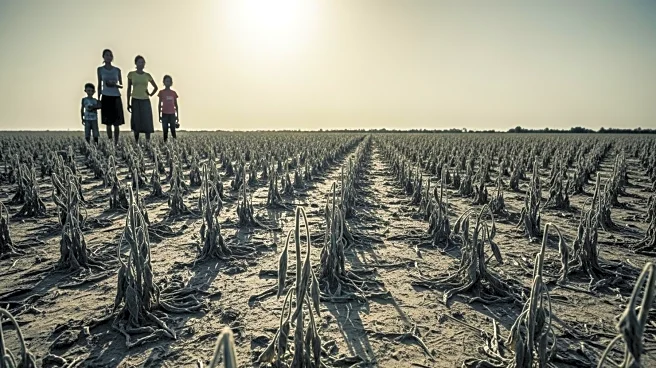What's Happening?
Sudan's ongoing conflict has severely impacted its agriculture sector, leading to a significant reduction in food production and causing widespread hunger. The United Nations reports that approximately 24.6 million Sudanese are experiencing severe food insecurity, with 637,000 facing famine-like conditions. The World Health Organization has confirmed famine in certain areas. The conflict, which began in 2024, has spread to key grain-producing regions, further diminishing arable land. The Gezira agricultural scheme, Sudan's largest irrigated farming zone, has suffered extensive damage, with local authorities estimating damages between 15 billion and 20 billion U.S. dollars. Despite easing conflict in Gezira, recovery is slow due to a lack of funds for repairing irrigation systems.
Why It's Important?
The devastation of Sudan's agriculture sector has profound implications for the country's economy and food security. Agriculture was once a cornerstone of Sudan's economy, and its collapse threatens the livelihoods of millions. The humanitarian crisis is exacerbated by the inability to resume farming activities, leading to increased reliance on international aid. The situation highlights the urgent need for conflict resolution and investment in infrastructure to prevent further deterioration. The global community may face increased pressure to provide aid and support to Sudan to mitigate the famine and stabilize the region.








